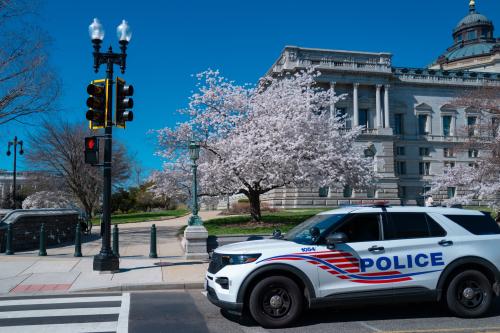Throughout 2021, the United States saw immense public investment to recover from the COVID-19 pandemic’s economic effects. At the same time, social movements for racial equity rallied many Americans to “Buy Black” and support Black-owned businesses.
That year, the number of Black-owned employer businesses (businesses with more than one employee) increased by 14.3% from the prior year. In fact, according to the Census Bureau’s Annual Business Survey, the number of Black-owned employer businesses grew consecutively from 2017 to 2021. Black-owned employer businesses also had the highest percentage increases in employees (7%), revenue (30%), and payroll (27%) in 2021 compared to white, Asian American, Latino or Hispanic, and Native American employer businesses.
But even so, the overall share of Black-owned employer businesses remained disproportionately low relative to their share of the U.S. population: In 2021, Black Americans represented 2.7% of employers, yet made up 14.4% of the population. Comparatively, white Americans owned 82% of employer businesses and made up 72.5% of the population, while Asian Americans owned 10.9% of employer business and made up 6.3% of the population. Latino or Hispanic and Native Americans1 also had disproportionately low shares, representing 6.9% and 0.8% of employer business owners yet 19.1% and 2.6% of the population, respectively.
Even if Black business ownership continued to grow at the rate it did in 2021 (the largest percentage increase since 2017), Black-owned businesses would still not reach parity with their population share for another 80 years. If we assume an expansion in the size of the economy such that no gains in Black business revenue or size came at the expense of non-Black businesses, it would take an additional 682,000 Black-owned employer businesses to equal the share of Black individuals in 2021—representing an estimated $776 billion more in revenue and the creation of 5.9 million jobs.
As part of our annual series on Black business ownership, this report expands on the Path to 15|55 initiative, which seeks to grow Black businesses and close racial disparities in employer business ownership based on the latest data from the Census Bureau’s Annual Business Survey (ABS). The ABS Program combines data results from survey respondents and administrative records to produce data on business ownership. The survey is collected from employer businesses and nonemployer data are compiled from administrative records.
Closing the gaps we explore in this report necessitates that community developers, investors, and Black entrepreneurs acquire, merge, and expand existing Black businesses—especially those which currently lack the capacity to hire employees. According to the most recent data from the Census Bureau’s Nonemployer Statistics, in 2019, Black-owned sole proprietorships (businesses without employees) were closer than Black employer businesses to equality with the share of the Black population: They represented 12.7% of all sole proprietorships—a total of 3.5 million businesses, and an increase of 10.9% from the year prior.
Sole proprietorships make up a disproportionately high share of Black-owned businesses overall: 96.3%, which is more than white (81.1%), Asian American (80.1%), Latino or Hispanic (92.4%), and Native American (92.4%) sole proprietorship shares. These disparities reflect the systemic barriers Black business owners face in becoming employers due to unequal access to capital, networks, and government contracts.
This interactive report gives insights on Black-owned businesses by providing summary statistics on the latest data from 2021 and reflections on trends in Black business ownership since 2017. Trends are presented nationally and for metro areas across the U.S, illustrating which cities were most hospitable to Black business owners.
-
Footnotes
- This data relates to populations the Census Bureau refers to as “American Indian and Alaska Native,” but not Native Hawaiians.
The Brookings Institution is committed to quality, independence, and impact.
We are supported by a diverse array of funders. In line with our values and policies, each Brookings publication represents the sole views of its author(s).





